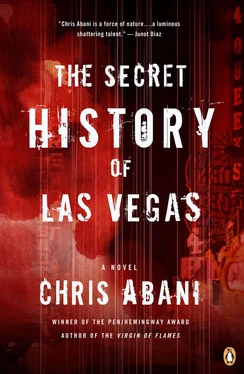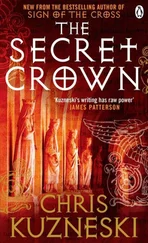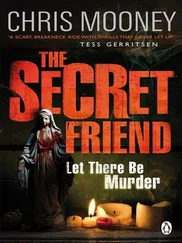Shut the fuck up, Eskia said. Try to die like a man, with some dignity, not this babbling that you think will save you. Do you think I have forgotten that once, a long time ago, we had a friendship? I never forgot that and yet here I am, resolved to kill you. No last-minute babbling will shake my resolve — you will die here today, alone, and I will bury you here. So please, if you must speak, make peace with your gods.
Sunil was silent. There was nothing to be said. He was going to die here. Alone. He wondered if there was something he was supposed to think about, if his entire life was meant to flash before his eyes. If it was, it wasn’t happening to him. Instead all he felt was an overwhelming fatigue, and a curious empty detachment. As if he were watching all this in a movie. He felt only one niggling regret. That he had never let himself love again, not since Jan. What a waste that had been. All that guilt, all those years. What would it have felt like to let himself truly fall in love — with Asia, or Shelia? Would it have made this moment feel any different, because if there was any certainty here, it was the inevitability of today? Of this moment. In a strange, inexplicable way, it felt right. I’m going to die today, he thought, and it wasn’t as scary as he had expected it to be.
Eskia turned off the freeway and onto a dirt road, headed for some disused buildings a few miles in the distance, in the shadow of a huge rock formation. Sunil was oddly impressed by it all — not only the eternity of the landscape but by the level of planning and effort and resolve Eskia had put into this.
Perhaps I should have kept my research in South Africa instead of coming here to Las Vegas, Sunil thought. There would be no end of damaged people like Eskia that he could have studied, not to mention the entire Boer nation. Maybe psychopathy wasn’t born in the brain after all. Perhaps it wasn’t a function of which gland was closer to or farther from another. Maybe psychopathy was born in the heart, by shame; shame and a broken, betrayed heart. He liked this new line of thought. It didn’t lend itself to empirical exploration, but there was a beauty to it, he thought, something beyond the mechanistic. Perhaps it just means that I still have a heart, which in itself is no small miracle.
Eskia stopped the car and pulled him out. He threw Sunil to the dirt and quickly attached a new plastic tie to his wrists while he lay there, breathing in the dust, feeling it tickle the back of his throat. He looked over to see Eskia pulling a duffel bag from the trunk of the car. Struggling to his knees, he looked around. There was a clump of Joshua trees in the distance and what looked like a flash of blue.
Well, Eskia said. Here we are.
Sunil knelt there in the dirt while Eskia put his bag on the closed trunk and began to unpack it. Both of Sunil’s hands were securely fastened with zip ties, which were cutting deeply into his skin; still he struggled against them, feeling the sticky warmth of blood on his wrists.
There’s no point struggling, Sunil, Eskia said, back turned. No one can get out of a zip tie. Not even Houdini if he were still alive.
Sunil resisted every impulse to scream, to curse, to beg. Instead he mustered all his energy and got up on his feet. He fully intended to ram into Eskia from behind, then head off into the desert, take his chances there. But before he could gather momentum for his charge, Eskia turned and struck him across the face with a crowbar, dropping him to his knees again.
Come on, Sunil, really? Do you know how long I’ve been doing this? Worked over people like you? I am justice, Eskia said.
You sound like Eugene, Sunil gasped, licking at the blood from his cut lip.
Eskia shrugged. Angels and demons have a lot in common, he said. Except of course to what service they put their powers.
Sunil spat at Eskia, the spittle and blood landing short.
Come now, bruh, Eskia said. Have some dignity. Now, here’s what I need from you. The password for the hard drive.
You’re going to kill me anyway, so why should I tell you?
I didn’t say how I was going to kill you. Sunil, you should know there are things worse than death.
Sunil said nothing, but he was beginning to sweat.
Did I ever tell you that I sent you the telegram announcing your mother’s death, Eskia said.
What the fuck are you talking about?
I was with your mother when she died. Or rather, I should say, when she begged me to take her life.
You’re lying!
Why would I lie? I have nothing to gain from that. Do you want to hear my story or not? Makes no difference to me.
Fuck you!
Your choice.
Eskia turned and paused before a series of items he had laid out on the trunk lid. The crowbar, a set of pliers, several scalpels, needles in varying sizes, a small blowtorch of the kind chefs use to caramelize a crème brûlée, a piece of rubber six inches long and about as wide, taken from the inner tube of a small tire — from the days when tires still had inner tubes — and a plain jute bag. Everything needed to break a man, to destroy body and soul, was available in most hardware stores or pharmacies.
Sunil glanced at the assemblage of materials and looked away, taking deep breaths, trying to brace himself. He knew only too well what was coming.
Eskia held up the bag.
In the old days, he said, the Afrikaner police would wet a bag like this, force you facedown, and squat on your back. Then they would pull the bag over your head until your lungs began to burn. Sometimes, depending on what they wanted, they would just let your lungs burn out, no questions asked. A fire made of air, or its lack. But I have something different planned for you.
Eskia put the bag down and picked up the piece of rubber.
Do you know what this is?
Sunil looked away.
The Afrikaner police called it the devil’s ski mask. Remember how it works.
With a lot of effort, Eskia pulled the piece of rubber down over the struggling Sunil’s head until his entire face was covered.
There, there. Now, how long should I leave it on?
Sunil was thrashing around on the ground, trying to use the friction of sand and pebbles to dislodge the mask. He couldn’t breathe, or see, or hear, or swallow. He felt like his head was on fire. He heard himself yelling in his head but knew instinctively that he had made no sounds. Just as a warm blackness welcomed him, Eskia pulled the mask up over his mouth, exposing it. Sunil opened his mouth and swallowed air in big wheezing gulps until he began to choke.
Password, Eskia asked, voice casual.
Fuck—
That was all Sunil could say before the rubber covered his mouth again, forcing him to once more thrash around like the chickens he’d seen being killed in the shebeen. Again, just at the threshold of that welcome wet, black blanket, Eskia pulled the mask up a couple of inches. And although he didn’t want to, although he wanted not to breathe, to end it now, his mouth and lungs overrode him, taking in deep gulps of air.
When I went to see your mother I worked for a unit of the ANC that was dedicated to killing informants. Killing those who betrayed the cause. To send a warning to others who might be tempted to turn us in. A kind of incentive, you could say. We came to the camp where your mother was being kept. In those days, the republic put black mental patients in camps, temporary shelters in the worst parts of the city, under flyovers or in former dump sites. In your mother’s case, she was housed with others in an abandoned mine workers’ barracks right in the heart of a township, one big ugly building that housed three hundred crazy people and thirty attendants who treated them worse than dogs. There was not a doctor in sight or a single dose of medication. It was little more than a prison. The worst part was that all those attendants, all thirty of them, were black, just like the patients. There were twenty names on that list. Your mother’s was one of them. We knew about White Alice and the deaths of our men in Zimbabwe. There was a lot of debate about your mother, Sunil. Many felt she should be spared because she hadn’t really been an informer. That she had paid enough when she sewed her mouth shut, and that even though those scars had long since healed over, she was locked in the hospital. But mercy was in short supply in those days and her name was added to the list. When I came into her room, she knew why I was there, but she said nothing. I’m not saying that it was easy to kill your mother. I stood there a fair while just looking at her. And then she let out this moan. Oh my God, it was awful. Like the sound a dying animal makes, a keening to freeze your blood. So I did the only humane thing I could, I did what I saw her eyes begging for. It was a mercy, you know, that bullet to her head. You should thank me for that. The thing is, Sunil, you and I know that you should have died, not her. It was you who betrayed your father. Johnny Ten-Ten told us everything when he joined. Instead your reward was a job at Vlakplaas. Maybe that was punishment enough.
Читать дальше












